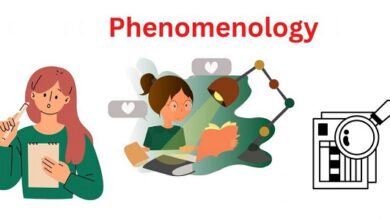Experimental behavior analysis what it is and what it proposes
We are active and dynamic beings. We are continually performing some type of behavior or conduct, usually with some type of goal or intention. Realizing this is relatively simple. But it’s not so much about determining how and why we behave as we do, the bases behind behavior. In this article we will make you aware about the Experimental behavior analysis.
In this sense and within the branch of psychology, different proposals, models and techniques have emerged throughout history to try to determine it. One of these is experimental behavior analysis , which we will talk about in this article.
Experimental behavior analysis: what is it?
The experimental analysis of behavior or behavior is understood as the theoretical or methodological system or paradigm that seeks to study and analyze the processes through which behavior is generated through an experimental, operational and qualitative methodology.
This system considers the behavior or behavior as a product of the interaction between natural selection, the reinforcement of previous behaviors and the interaction with the social environment.
The experimental analysis of behavior appears as such in the works of BF Skinner, and is largely based on the radical behaviorism he advocates: behavior is the only object of study in psychology, as it is the only thing that is directly observable. This author especially emphasizes the importance of consequences when explaining behavior and its modification (also being the origin of operant conditioning). It is intended to explain human and/or animal behavior based on observable and measurable relationships between stimuli and responses .
Technically, experimental behavior analysis would be one of three disciplines that would be included in behavioral analysis, in this case the one that focuses on the investigation of basic processes. In addition, we also find conceptual analysis (for theoretical aspects) and applied behavioral analysis (which opens the way to reflect and use the knowledge obtained in practice).
It is important to keep in mind that this model would be started by Skinner, but many other authors would make modifications and subsequent incorporations. Among them are the investigations carried out by Bijou or Wolf, with children, with the objective of observing the sensitivity to the consequences of the behavior of minors in different conditions.
The behavior in this conceptual system
Regarding the consideration of behavior by the experimental analysis of behavior, according to this model it is the result of the interaction of biological and environmental variables that allow the generation of associations between stimuli, responses and consequences. The human being or animal in question would be an entity classified as a black box, something inexorable and whose internal elements need not be the mechanisms that initiate the behavior .
One of the main characteristics of the experimental analysis of behavior is that it considers that behavior as a whole is not arbitrary, but is subject to natural scientific laws, in which it is related to a dependent variable (the behavior) with an independent variable (its causes). ), so that these laws allow behavior to be predicted and modified based on them.
The basis of our behavior are, according to the model from which the experimental analysis of behavior, the consequences and effects that these have on the body that emits them . Behaviors that generate pleasant consequences are considered to be reinforced in order to be maintained and perpetuated, while aversive consequences will lead to maladaptive behaviors that tend to disappear.
Furthermore, with regard to the participation of the environment, it should be noted that it is possible to find the existence of phylogenetic, ontogenetic and cultural contingencies that affect the initiation and commission of behavior. The environment, therefore, affects participation based on how we evolve and the context we are in, the reinforcement our behavior has received throughout our lives and the situation in which we are immersed at the sociocultural level.
private events
The experimental analysis of behavior is based on a model that does not include the mind or cognition in the explanation of behavior, but accepts the existence of private behaviors or those that are only observable by the subject who experiences them.
In this sense , the existence of private verbal behavior , distorted perceptions based on conditioning and the presence of situations in which the organism itself is the source of the stimulation generated by the behavior are accepted.
Model criticism
Experimental behavior analysis is a system that has had great influence and repercussions in the field of psychology, but although it is still useful in different fields, it has also received a lot of criticism.
Taking into account that the experimental analysis of behavior proposes that behavior is governed by a series of unalterable laws and that it discards or does not evaluate the implication of non-evaluable aspects, such as motivation, goals and desires, this model offers a mechanistic view of the behavior. conduct, being one of the reasons why he was controversial at the time and why he received mixed reviews.
Another possible criticism to be taken into account is that many investigations carried out in the experimental analysis of behavior were carried out with different animal species, so that the conclusions drawn are not always generalizable. However, the model takes this fact into account and is cautious about generalizing its conclusions across different species (although many of its basic principles have been reflected in humans and other beings).
Likewise, the existence of internal and individual factors as possible causal factors of behavior is not taken into account, being mainly passive under the paradigm on which it is based. However, this does not imply that the existence of private events is not taken into account , something that would gradually lead to the emergence of cognitivism.


